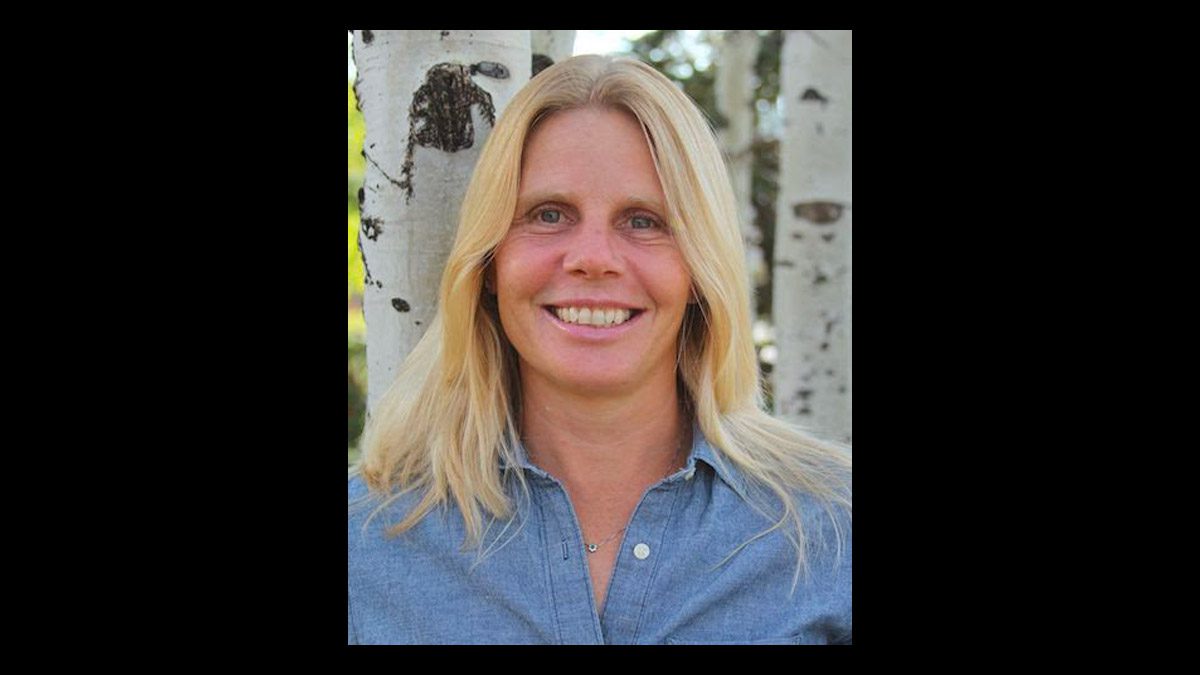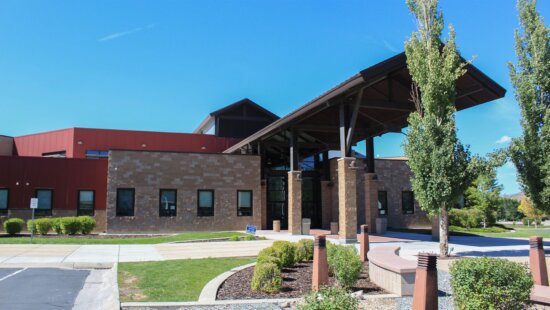Education
Fire at Will: Park City School Board VP Wendy Crossland

Park City School Board VP Wendy Crossland. Photo: Wendy Crossland
PARK CITY, Utah – In this informative and reoccurring series I will be conversing and partaking in insightful discussions with various elected officials and important people in the state of Utah. Through these conversations, I intend to explore the core of their roles, shedding light on the significant responsibilities and duties that come with public office.
Throughout this series, we will also delve into their viewpoints on critical issues affecting their constituents and the efforts they have made to address these concerns and promote advancement within their communities.
In this week’s edition, I had the opportunity to speak with Wendy Crossland, the Vice President and a member of the Park City School Board of Education.
Crossland is born and raised in the Seattle area, and eventually earned a law degree. Crossland practiced law for over seven years, but eventually was drawn to becoming an educator. Since working as a teacher, Crossland has taught in Boston, Bogotá, Colombia, and most recently in Park City since moving here with her family in 2017.
Crossland has been a member of the Park City Board of Education since 2019, and represents the Park West neighborhood and District 3 on the School Board.
Crossland describes her main roles and responsibilities on the school board as managing the budget and enacting policies.
“Our role, by bylaws and practices, is that we are in charge of the budget, and we are in charge of policy. We are also in charge of hiring and employing the superintendent and manager,” Crossland explained. “Those roles can sometimes merge into other lanes that we typically aren’t responsible for, for example how do you operate a classroom during COVID, because operations are not typically our job.”
“We get presented with what is the needs and the highest priorities going into the next school year, and we’ll hear from superintendent Dr. Gildea about if we need to hire another assistant, or another teacher,” Crossland said. “We entrust her with what she needs to operationally run the district, and our job is to review that and make sure we’re budget conscience.”
As Crossland is the vice president of the school board, her role comes with a few extra responsibilities.
“The role comes with some leadership responsibilities. The president, myself, and Dr. Gildea have to review things and do some additional work, whether it’s preparation of what gets put on the agenda based on what needs additional attention or needs to be addressed,” Crossland said of her role as vice president. “We’re reviewing things ahead of board meetings. We are part of the negotiation meetings with various groups to renegotiate contracts. The whole board obviously votes on all of that, but we’ll do some more of the leg work around it.”
As the school board is an elected position, all members toe a fine line balancing trying to earn the popular vote and trying to implement the best policies for the children.
“I think each individual will have a different answer, but for me, I know that it was never a political position,” Crossland said of school board members being elected. “We bring our own individual ideas on about what we think is important to be part of policy or to make decisions about the budget. Our own lenses certainly inform some of our individual votes, but at the end of the day, we go back to what we were elected to do, which is to be good stewards of taxpayer dollars and have a school district that is meeting its mission.”
Crossland began her stint on the school board almost a year prior to the beginning of the COVID-19 pandemic, a time that brought mass confusion to all school boards, educators, and administrators.
“There wasn’t a playbook for COVID, and I feel like it was more or less a moment where we had to make some decisions not knowing fully how they would play out,” Crossland said of the COVID pandemic. “There were always different opinions on things, but I think that at the end of the day, we stuck to our priority of getting kids in school knowing the damage that it could do to not have them in school.”
Despite the uncertainty of the pandemic, the Park City School District resumed in-person classes in the Fall of 2020, with options for students to resume remote and virtual learning.
“We made the decision (in the Fall of 2020) to have in-person classes and to have the alternative to learn online. It strapped the system a little bit because that’s a big ask for teachers, balancing two different lesson plans and two different ways of managing your students,” Crossland explained. “We’re so thankful we made that decision (to have in-person classes). It took a lot of resources, and a lot of work from a lot of people to be able to keep our schools open.”
According to Crossland, most parents were supportive of having their children back in the classroom, as long as adequate safety measures were put in place.
“I think the majority of people said that they wanted the schools to reopen, but wanted it opened if it was safe and healthy,” Crossland said. “We did receive some pushback, and I think that was because of uncertainty about tracing or mask-use, and how to keep enforcement of that with 20-25 little kids in the classroom.”
A lot of what the school board was focused on budget issues, as well as following CDC and state guidelines related to social-distancing and quarantining protocols.
“We worked a lot on budgeting, you have state funding and federal funding, and we worked a lot on budgeting new programs related to online and remote learning. A lot of our meetings were also about trying to implement quarantine protocols and following CDC guidelines, ” Crossland explained. “The real kudos go to the admin, the staff, and the teachers, who made it all happen.”
A lot of different viewpoints surrounding COVID entered school classrooms and into school boards throughout the country during the pandemic, something that Crossland acknowledges.
“You’re dealing with a people with so many unknowns, and people who are scared for them and for their children,” Crossland said. “We had a lot of decisions to make, and none of us ran to be on the school board to make these types of decisions. It felt big, it was big, and it felt like a lot. We took a lot of input from parents into our decision making, and we had a lot of guidance from the county and from superintendent Dr. Gildea.”
In addition to sitting on the school board during COVID, Crossland has also seen some controversial rulings from the state be implemented in Utah public education, most notably H.B. 374, the Sensitive Materials in Schools Act, which requires all public school districts to establish a committee to review and possibly ban materials submitted by parents who deem them inappropriate.
“People can write an application to challenge a book based on their reasonings, and you can challenge the book under the House Bill’s policy and definitions of pornography. The policy is not super clear and is based on three different administrative rules on if something is taken in the literary context to be arousing,” Crossland said.
“We value that our teachers have made decisions based on educated choices, and we trust them with our children everyday,” Crossland said. “But we established a first committee to review submissions, and the decision from the first committee can be appealed to a second committee, and the board actually ends up having the final decision if it is appealed again.”
Crossland and the entire school board take each submission very seriously, and make an effort to read each book that is submitted as sensitive.
“We are actively involved in the initial steps, but I will say it is a massively cumbersome process for many staff and administrators,” Crossland said. “I really respect the process of every book that’s challenged because that’s part of our commitment on the board, and we have to read each book, so we don’t take any of these challenges lightly. We respect what our families believe and want the best for their students, but we don’t want to let what might be not great for one student to then not be appropriate for all students.”
The Park City School District has seen several books challenged, and each committee is made up of at least one parent, and staff members are constantly reviewing materials if it is challenged or not.
One of the things Crossland is most proud of during her time on the school board is the passing of the equity policy, which aims to reduce barriers for students facing different challenges.
“That was a good long time in the making, and it really doesn’t reflect anything other than what we’ve been doing and had as a mission here for years,” Crossland said of the equity policy. “I think it became a controversial thing, because there’s words in an equity policy that today are very politicized. And so our goal was to, you know, kind of codify what we already were doing and already supporting.”
“I like to share this story, my brother in law has lots of learning differences, and he couldn’t have been in school if it weren’t for people who advocated and evolved towards inclusive programming. I think this policy represents a moment in time right now that we’re recognizing other barriers to students’ success. It gives us a chance to support continued organic develop programs that support lots of our students in various different ways.”
The equity policy attempts to break down barriers for students facing any challenges in their education, including those at home or in the classroom.
“It addresses all students, students who learn differently, students who have barriers at home socio-economically, or work barriers, students who aren’t able to access certain programs or academics, or even activities, such as athletics. We need to continue to address what is preventing students from having access to activities or having success in the classroom.”
Crossland’s term on the school board ends in 2024, and she is not yet thinking about possibly running for reelection.
“The truth is, my reality is that I have one child in school here and he graduates in three years and I don’t know what our family’s next chapter is and what life holds forever. So I hope to continue to do good work right now, and be part of the board and work a lot and then give a chance to someone new,” Crossland said.


















